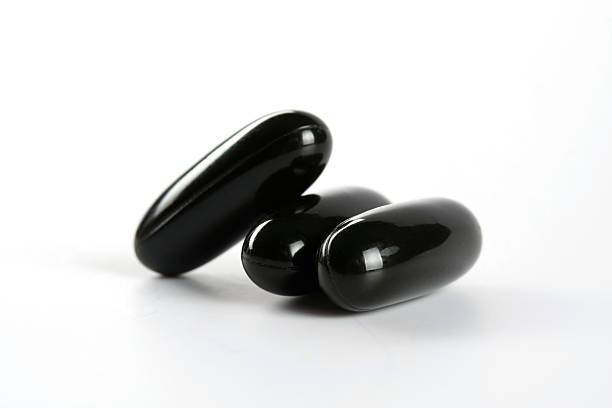Women experience a monthly check-in every 28 days or better known as a period. For some, this is a routine and uneventful time- well you gals are in the minority and #soblessed. For the majority of us our monthly visitor can wreak havoc on our training, moods, and icing on the cake it can be pretty uncomfortable. But, there are ways in which you can reduce the symptoms and severity of PMS, with nutritional supplements. What are the best supplements for PMS? Well, keep reading.
What Causes PMS?
Having your period is super important not only as a fertility measure but to aid in detoxification. Excess loads of toxins in our bodies can impair delicate hormonal balance. Toxins damage enzymes and lower the bodies ability to prevent radical free damage, which can accelerate the aging process. Toxins are inescapable: they are formed from food, water, mold, clothing, on our cell phones, toxins are virtually everywhere. Coincidentally they can cause especially severe PMS symptoms. PMS can also become worse towards the end of the menstrual years due to a decline in progesterone [R]
The main cause of PMS is hormone imbalance. We know that sugar, alcohol, stress, and lack of exercise can all contribute to PMS symptoms. If all those variables are on point, it may be worth considering supplementation in order to make your period less disruptive to your life inside and out of the gym.
RELATED ARTICLE Can You CrossFit On Your Period?
What Supplements Help PMS?
DIM
What is DIM?
All roads lead back to eating your greens. Indole-3-carbinol (I3C) or DIM is an ingredient found in cruciferous vegetables such broccoli. DIM is one of the best supplement for PMS because it helps rid the body of toxins and therefore assist with hormone balance. A supplement is just that, something to supplement your diet with. In addition to supplementation, you can balance your hormones with changes in diet by including more microgreens such as bok choy, cabbage, kohlrabi, and kale. Cruciferous veggies are extremely nutritionally dense and are extremely beneficial for women with thyroid issues as the thyroid is the master regulator of all things hormones [R,R]
How Does DIM Help With PMS?
DIM blocks an enzyme that converts testosterone into estrogen. Then, it converts ‘bad’ estrogen into ‘good’ estrogen. Good estrogen is associated with low body fat, more muscle, higher quality collagen in skin and joints, healthy bone density, and strong antioxidants protecting the body from free radicals. Bad estrogen is associated with PMS, fibroids, endometriosis, water retention, and low sex drive [R].
An enzyme called aromatase, which we all have, converts a portion of our testosterone into estrogen. DIM naturally inhibits aromatase so more testosterone is freely available in our system. Not only does increased testosterone allows us to hold onto more muscle mass, but there is also less aromatase available and therefore, less harmful estrogen metabolites leading to fewer PMS symptoms [R].
Calcium + Vitamin D
Calcium is a necessary vitamin necessary for heart, muscles, and nerves to function properly and for blood to clot. Low calcium is associated with low bone mass and higher fracture rates.
How does Calcium + Vitamin D help with PMS?
Research suggests that blood Calcium and Vitamin D levels are lower in women with severe symptoms of PMS. Calcium absorption can fluctuate across the menstrual cycle, which is why supplementation may be indicated here. A study published in 2017 observed a group of college students who reported severe PMS symptoms. Students were given 500 mg of calcium a day for two months. Compared to a placebo group, those taking calcium saw lower rates of anxiety, depression, fluid retention, and moodiness. Vitamin D in the body is crucial for the absorption of calcium as well as bone health. According to a 2005 study having inadequate blood levels of vitamin D is common among women who suffer from PMS [R,R].
RELATED Vitamin D: More Than Just The Sunshine Vitamin
ZMA
ZMA is a natural mineral supplement made of zinc, magnesium, and B6. It has been used by athletes to support the immune system and muscle health, aid in metabolism, manage sleep, and help to boost energy.
RELATED ARTICLE The Benefits of ZMA: More Than Just A Sleep Aid
How Does ZMA Help With PMS?
Magnesium can work but calming the nervous system and “normalize hormones” mainly progesterone. It has been found to relax smooth muscle in the uterus and reduce prostaglandins that cause period pain. Magnesium also promotes healthy estrogen clearance by supporting the CMOT enzyme. You can get magnesium naturally from green leafy veggies, chocolate, and nuts. However, if you suffer from chronic stress and inadequate sleep magnesium can become depleted so supplementation may be indicated. Zinc in combination with magnesium has antioxidant and anti-inflammatory characteristics and can aid in reducing cramping and pain. In a 2007 study participants consuming 31 mg of zinc per day had a decrease in PMS symptoms. Studies suggest that taking zinc one to three times per day prior to menses can help significantly with cramps [R].
RECOMMENDED PRODUCT ZMT, 30 Servings, $35.99
Is Supplementing During PMS Right For You?
Almost unanimously studies agree that diet, exercise, lifestyle factors, and minimizing stress are the most beneficial ways to reduce the effects of PMS. Supplements are just that- they are used to supplement your diet, fill in the cracks where there are voids. Taking a supplement like DIM can be really beneficial because it's highly unlikely that someone would consume an entire head of cauliflower in a day in order to reduce PMS symptoms. If you have a diet low in calcium and vitamin D because you are a vegan or dairy free, supplements could also make a huge difference. Adding any one of these into your diet can change your training, mood, and overall energy levels during PMS.
Random control trials, which are second next to systematic reviews in the hierarchy of research have been published on all of these supplements. I have my own personal experience throughout my life, at different times and for different reasons, with taking these supplements. The most profound effects in regulating PMS symptoms seen with DIM. Before taking anything, do your own research, consult your physician, and explore what might be best for your personal needs.
Want to reduce the severity of your PMS? Our product ZMT is made with Zinc, Magnesium, Vitamin B6, and DIM, to help you balance your hormones and increase overall vitality
SWOLVERINE is an endurance athlete and active lifestyle brand. Made for the elite athlete, and the strong-willed our products were designed to fuel your athletic performance. We perform when you perform.
We believe that everyone can optimize not only their athletic performance but their human potential. The way we believe we can optimize performance is through transparency, clinically effective doses, and clinically proven ingredients with evidence-based outcomes. We provide the nutrients you need to power your active lifestyle.
ABOUT THE AUTHOR

References
1. Pizzorno, Joseph. “How Toxins Cause Disease.” Institute for Natural Medicine, 20 Nov. 2018, naturemed.org/how-toxins-cause-disease/.
2. HormonesBalance, Magdalena. “The Truth About Cruciferous Vegetables and Your Thyroid.” HormonesBalance.com, Hormones & Balance, 9 Oct. 2018, hormonesbalance.com/articles/truth-cruciferous-thyroid-not-think/.
3. Martin, Jennifer. “SOS for PMS.” Amazing Wellness Magazine | The Vitamin Shoppe, 1 Mar. 2016, amazingwellnessmag.com/departments/supplements-for-pmsSperlazza, Courtney.
4. “Diindolylmethane (DIM): The Hormone-Regulating Supplement for Acne, Weight, Breast Cancer, and More.” Bulletproof, Bulletproof, 18 Sept. 2018, blog.bulletproof.com/benefits-diindolylmethane-dim-supplement/.
5. Shobeiri, Fatemeh, et al. “Effect of Calcium on Premenstrual Syndrome: A Double-Blind Randomized Clinical Trial.” Obstetrics & Gynecology Science, vol. 60, no. 1, 15 Jan. 2017, p. 100., doi:10.5468/ogs.2017.60.1.100.
6. Ghanbari, Z, et al. “Effects of Calcium Supplement Therapy in Women with Premenstrual Syndrome.” Current Neurology and Neuroscience Reports., U.S. National Library of Medicine, June 2009, www.ncbi.nlm.nih.gov/pubmed/19574172.
7. Briden, Lara. “Magnesium and the Menstrual Cycle.” Clue: Period and Ovulation Tracker for IPhone and Android, Clue, 2018, helloclue.com/articles/cycle-a-z/magnesium-and-the-menstrual-cycle.








